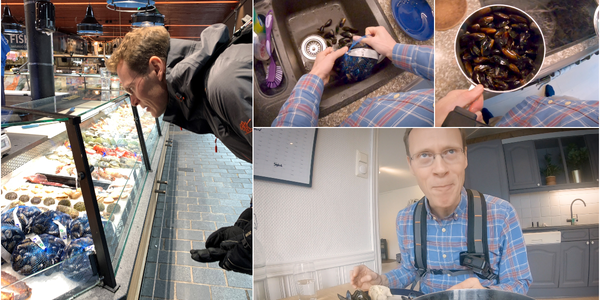News
Result: (48) Showing 1 - 30

How to cook blue mussels in four-ish minutes
20.12.2019

Ocean Science Decade: From talk to action
12.11.2019

Software revolutionises marine research
21.10.2019

Alarm bells raised about ocean warming
25.09.2019

10 things you didn’t know about ice
25.09.2019

Haddock larvae have an internal compass
18.09.2019
Research centre lands a good catch
11.09.2019
Crowding mackerel can affect the fillets
08.08.2019

Researchers discovered leak from Komsomolets
10.07.2019

Aquaculture didn’t cause the algal bloom
28.05.2019



















